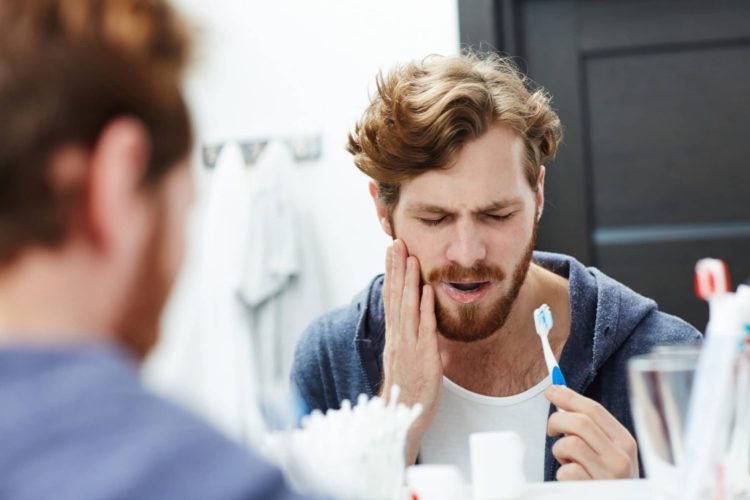Neuromuscular Dentistry
Physiologic (neuromuscular) dentistry determines the appropriate physiological position of the jaw by measuring the relaxed posture of the head and neck muscles. The jaw is then adjusted for proper occlusion or biting position. Patients suffering from Temporomandibular Joint Dysfunction (TMD) and neck compression may benefit significantly from physiologic dental treatments.

TMJ/ TMD
Temporomandibular joint dysfunction, sometimes known as TMD, pertains to a cluster of closely linked conditions. These conditions are caused by the jaw, the jaw joint, or the facial muscles responsible for jaw movement.Custom Orthotics
Orthotics are acrylic devices intended to restore proper biting function. It can be either fixed or detachable and covers all the teeth (bonded onto the teeth). An orthotic facilitates the recovery of function.Cosmetic Orthodontics
Dr. Garza has received training in Controlled Arch Orthodontics from LVI. This instruction enables him to comprehend the origin and reason for the malocclusion (crowding and misalignment).What Is Neuromuscular or Physiologic Dentistry?
The harmony of teeth, joints, and muscles can alleviate the symptoms of TMJ dysfunction. Additionally, this role must be located with a dedicated computer. Moreover, splits and mouth guards are assumptions and cannot be used to assess your physiological posture. The effectiveness of our office’s neuromuscular treatments is 99 percent.
Physiologic Dental Services
Dr. John A. Garza provides the following neuromuscular dental services:
Neuromuscular Dentistry Patient Testimonial
Symptoms Of Temporomandibular Joint Disorder
There are a number of symptoms that could be related to TMD. If you are experiencing any of the following symptoms/conditions, contact our office today to schedule a consultation with Dr. John A. Garza.
- Headaches, including migraines
- Neck/Shoulder pain
- Ear congestion
- Clenching and grinding
- Loose teeth
- Facial pain
- Worn down teeth/Flat teeth
- Forward head posturing
- Sensitive and sore teeth
- Ringing in the ears/Vertigo
- Clicking/popping in the joints
- Limited opening of the mouth
- Tingling in the fingertips
- Jaw pain
- Cervical/neck problems
Before initiating the final restoration, it is crucial to determine the optimal physiologic posture of the jaw. It prevents muscular imbalances that otherwise lead to dental, skeletal, and skeletal postural instability. Dr. Garza can also restore the appearance and function of the entire mouth by assessing the occlusion (bite position), jaw muscles, and supporting hard and soft tissue structures of the temporomandibular joints.
Neuromuscular Dentistry Vs. Traditional Dentistry
Traditional dentistry is primarily concerned with the teeth and jawbone. In contrast, physiologic dentistry investigates the connection between your entire bodily system and the function of your mouth. It examines the relationship between hard tissue, soft tissue, muscles, and nerves concerning body posture and physiologic range of motion.
A comprehensive physiologic examination will allow Dr. Garza to properly determine and design a treatment plan that will best meet your needs for long-term optimal oral health and comfort!

Physiological Dental Technology
We believe keeping the most up-to-date technological equipment and supplies is crucial. In addition to making dental procedures quicker, more precise, and less painful, contemporary technology produces results that endure longer. This feature makes both your and our stay more enjoyable.
Computerized Jaw Tracking Instrumentation
They record jaw motions, range of motion, closure path, protrusive guidance, rest positions, habitual centric occlusion, and highway space.
Electromyography
Used for monitoring muscle function.
Sonography
The capturing of jaw joint noises assists in the detection of issues.
Myo-Monitor (Low-Frequency TENS)
It is used to relax overly active facial and jaw muscles.
Compression & Postural Accommodations
Headaches, migraines, vertigo, tinnitus, and postural pain are alleviated. The stomatognathic system can be damaged by splints and orthodontic equipment that are not assessed to the physiologic position by a Neuromuscular/Physiologic dentist. These are only educated estimations.
CT Scans
Examining the jaw joint's condition, position, and neck compression using three-dimensional radiography.
Before a complete restoration, it is essential to ascertain the correct physiologic jaw position. It prevents muscular imbalances that could lead to dental, skeletal, and body postural instability. Dr. Garza can restore the form and function of the entire mouth by analyzing the occlusion (bite position), the jaw muscles, the supporting hard and soft tissue structures of the temporomandibular joints, and neck compression. Restoring in any other position could lead to a pathological or unhealthy situation.
Why Choose Dr. Garza For TMJ Treatment?
Dr. Garza possesses the DDS, LVIF, FIAPA, and BSc degrees. Dr. Garza is CURRENT in his LVI training and has finished ALL of the prerequisite and advanced courses. He holds certifications from LVIF, FIAPA, TMJ, Ortho, and Sleep. Moreover, he has completed a course in oral myofunctional therapy to treat maldevelopment, preventing and eradicating future TMJD issues in our predisposed children. Yes, proper treatment and attention to epigenetics can prevent TMJD. Dr. Garza, who has completed all four orthodontics programs at LVI, is an early adopter of AGGA and Controlled Arch Orthodontics. Prevention represents the future!
Is Physiologic Dentistry Right for You?
Next time, we will discuss your airway in further detail and how physiologic dentistry can benefit your sleep and overall health.
Schedule a Consultation
To learn more about orthotics teeth, or to arrange an appointment with Dr. John A. Garza, contact (480) 539-7979 now! Our knowledgeable staff gladly serves patients from Gilbert and nearby Arizona communities.

